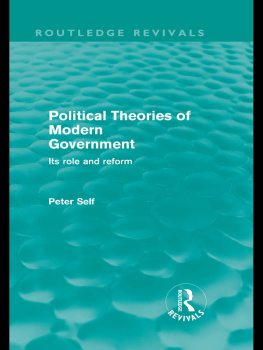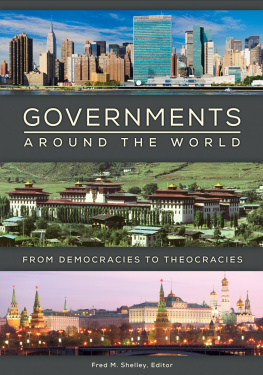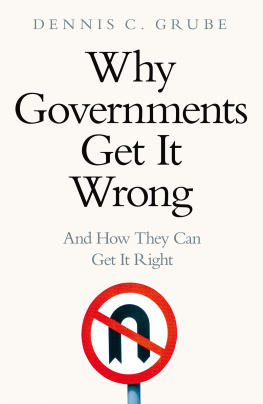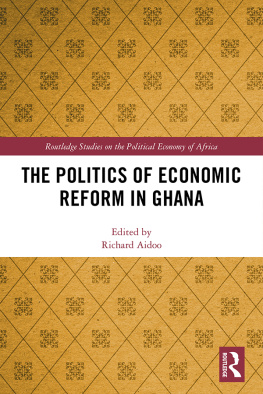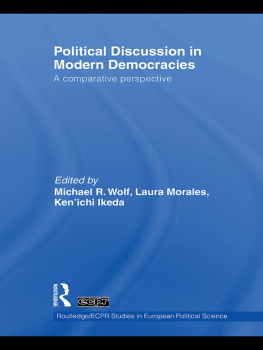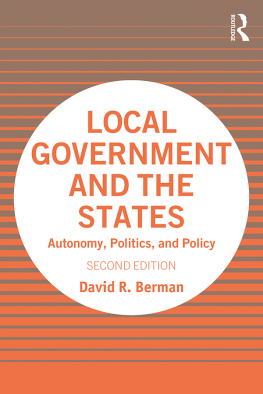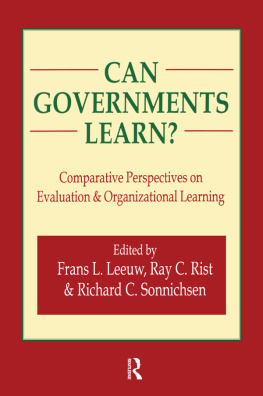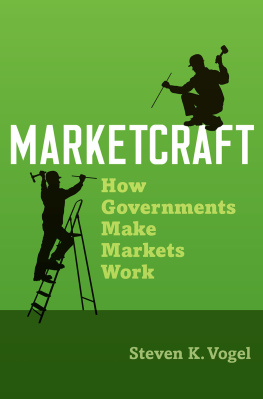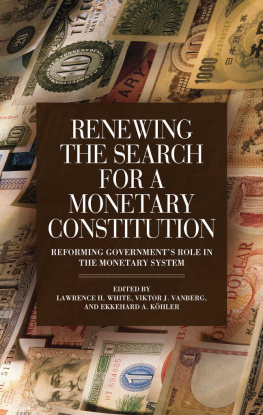Routledge Revivals
Political Theories of Modern Government
This reissued work, originally published in 1985, is a uniquely broad and original survey of theories and beliefs about the growth, behaviour, performance and reform of the governments of modern Western democracies. After analysing the external pressures which have shaped modern governments, the author examines four different schools of political thought which seek to explain the behaviour and performance of governments, and which offer different remedies for the pluralism, corporatism and bureaucracy.
To examine and test these general theories, the author looks closely at how governments actually work. The book is illustrated with examples drawn from various Western societies. The final chapters present the authors own conclusion about the future role of government, the limits of market philosophy, the future of politics, and the principles and problems of institutional reform.
Political Theories of Modern Government
Its role and reform
Peter Self
First published in 1985
by Unwin Hyman Ltd
This edition first published in 2010 by Routledge
2 Park Square, Milton Park, Abingdon, Oxon, OX14 4RN
Simultaneously published in the USA and Canada
by Routledge
270 Madison Avenue, New York, NY 10016
Routledge is an imprint of the Taylor & Francis Group, an informa business
This edition published in the Taylor & Francis e-Library, 2009.
To purchase your own copy of this or any of Taylor & Francis or Routledges collection of thousands of eBooks please go to www.eBookstore.tandf.co.uk.
1985 Peter Self
All rights reserved. No part of this book may be reprinted or reproduced or
utilised in any form or by any electronic, mechanical, or other means, now
known or hereafter invented, including photocopying and recording, or in any
information storage or retrieval system, without permission in writing from the
publishers.
Publishers Note
The publisher has gone to great lengths to ensure the quality of this reprint but
points out that some imperfections in the original copies may be apparent.
Disclaimer
The publisher has made every effort to trace copyright holders and welcomes
correspondence from those they have been unable to contact.
ISBN 0-203-85729-1 Master e-book ISBN
ISBN 13: 978-0-415-57079-4 (hbk)
ISBN 13: 978-0-203-85729-8 (ebk)
ISBN 10: 0-415-57079-4 (hbk)
ISBN 10: 0-203-85729-1 (ebk)
Political Theories of Modern Government, Its Role and Reform
Other books by Peter Self
Administrative Theories and Politics
Econocrats and the Policy Process
Planning the Urban Region
Political Theories of Modern Government, Its Role and Reform
Peter Self
Australian National University, Canberra,
and
London School of Economics and Political Science
London
UNWIN HYMAN
Boston Sydney Wellington
Peter Self, 1985.
This book is copyright under the Berne Convention.
No reproduction without permission. All rights reserved.
Published by the Academic Division of
Unwin Hyman Ltd
15/17 Broadwick Street, London W1V 1FP
Allen & Unwin Inc.,
8 Winchester Place, Winchester, Mass. 01890, USA
Allen & Unwin (Australia) Ltd.,
8 Napier Street, North Sydney, NSW 2060, Australia
Allen & Unwin (New Zealand) Ltd in association with the
Port Nicholson Press Ltd,
60 Cambridge Terrace, Wellington, New Zealand
First published in 1985
This edition published in the Taylor & Francis e-Library, 2009.
To purchase your own copy of this or any of Taylor & Francis or Routledges collection of thousands of eBooks please go to www.eBookstore.tandf.co.uk.
British Library Cataloguing in Publication Data
Self, Peter
Political theories of modern government: its role and reform.
1. political science 2. Democracy
I. Title
351'.001 JC423
ISBN 0-04-320174-1
ISBN 0-04-320175-X Pbk
Library of Congress Cataloging in Publication Data
Self, Peter
Political theories of modern government.
Bibliography: p. 212
Includes index.
1. State, The. 2. Political science. I. Title.
JC325.S45 1985 320.2 856076
ISBN 0-04-320174-1 (U.S.: alk. paper)
ISBN 0-04-320175-X (U.S.: pbk.: alk. paper)
ISBN 0-203-85729-1 Master e-book ISBN
Dedication
To Bernard Schaffer whose learning and wit
lit up every subject he tackled.
CONTENTS
INTRODUCTION
The governments of modern Western societies present a rapidly changing spectacle. Throughout this century, governments have grown rapidly in their size and functions, and have become much more complex in respect of their policies and goals. These developments seem to have been propelled by inexorable processes of economic and social change, as well as by the demands of political groups and parties. Government has become the dumping ground for innumerable social problems which (seemingly) can be tackled by no other means. One might therefore expect that the operations of governments would occupy a high place in public interest, and that their policies should be able to rely upon the general support of public opinion.
In fact, the performance of modern government has come under increasingly severe scrutiny. Economists compare it unfavourably with the operation of competitive markets. Political scientists describe how strong interest groups use public money or powers for their own advantage. Marxists have seen government as a more or less pliant servant of capitalism. Students of administration have observed severe overload in the machinery of government and have pointed to many forms of bureaucratic inefficiency or policy perversion. These criticisms are often qualified and are not unanimous, and may of course be mistaken, but they do seem to correspond with a good deal of more general comment upon the failings of governments.
It therefore seemed a worthwhile task to attempt an overview of some leading schools of thought and opinion about the performance of modern democratic governments. The theories of this books title are not precise and detailed, but represent broad schools of thought about the nature of government. Thus government is viewed in turn through the lenses of economists concerned with the behaviour of rational individuals in political situations; of pluralist thinkers who see government as divided into numerous groups and organizations, both private and public; of the new theorists of corporatism who deal with the growing integration of public and private interests; and of modern theorists of bureaucracy.
Each school of thought strives in the first instance to explain the character and behaviour of government, not to criticize it. Explanation moves to criticism when the performance of government is compared with some standard that is regarded as desirable and attainable. Each theoretical approach brings with it a typical reform agenda and a set of often diverse prescriptions. So this book is concerned both with why governments act as they do and with

